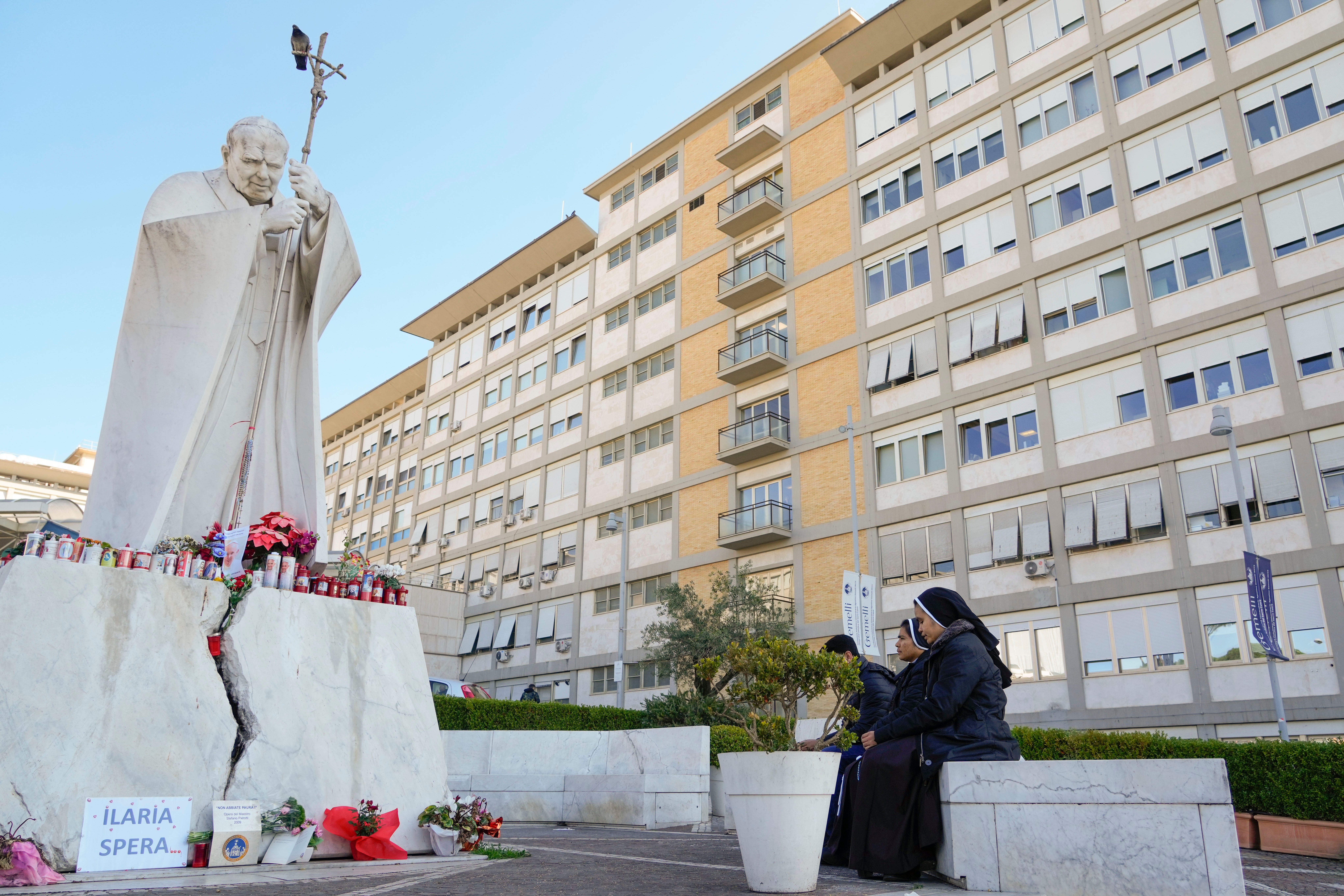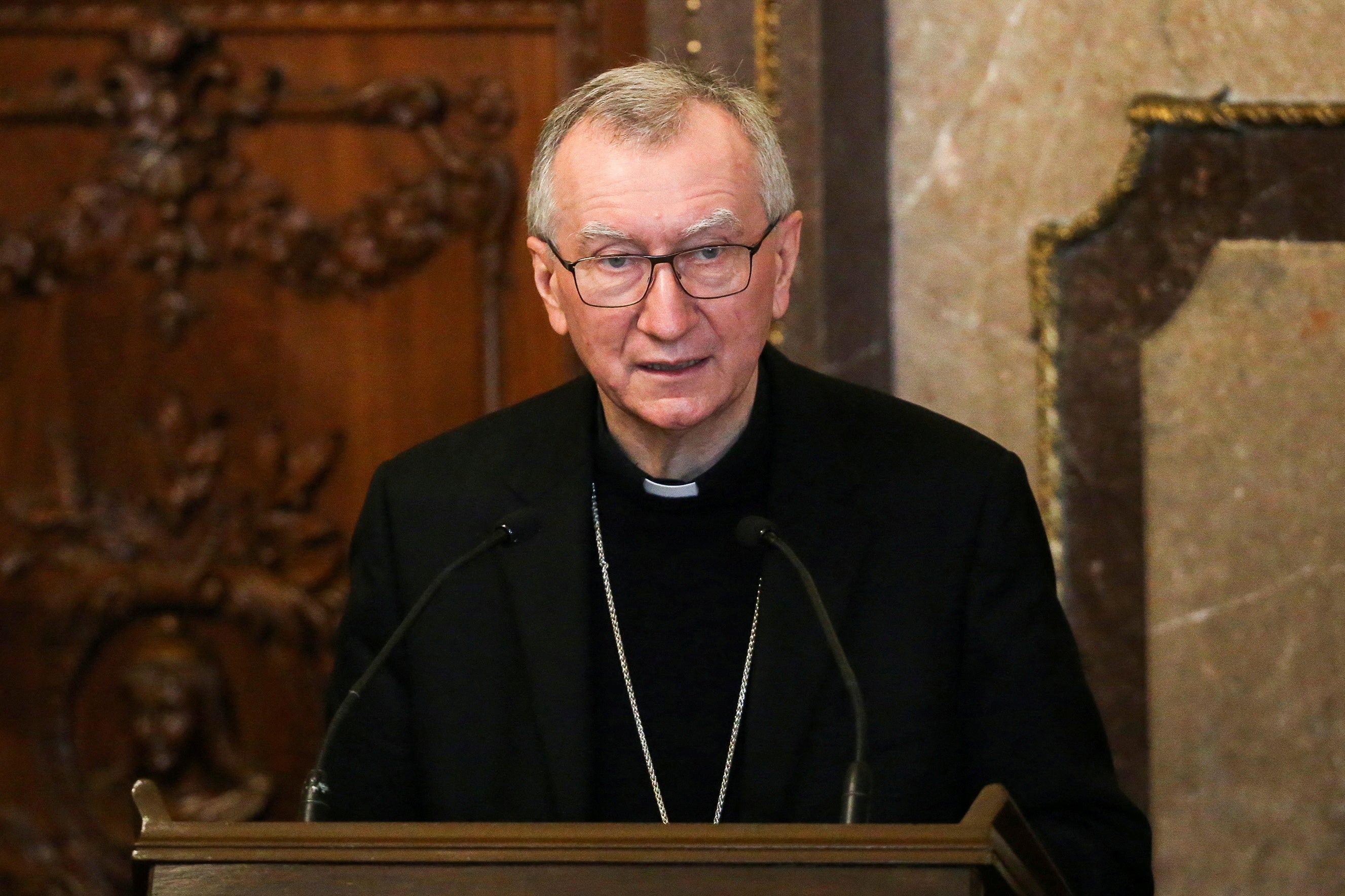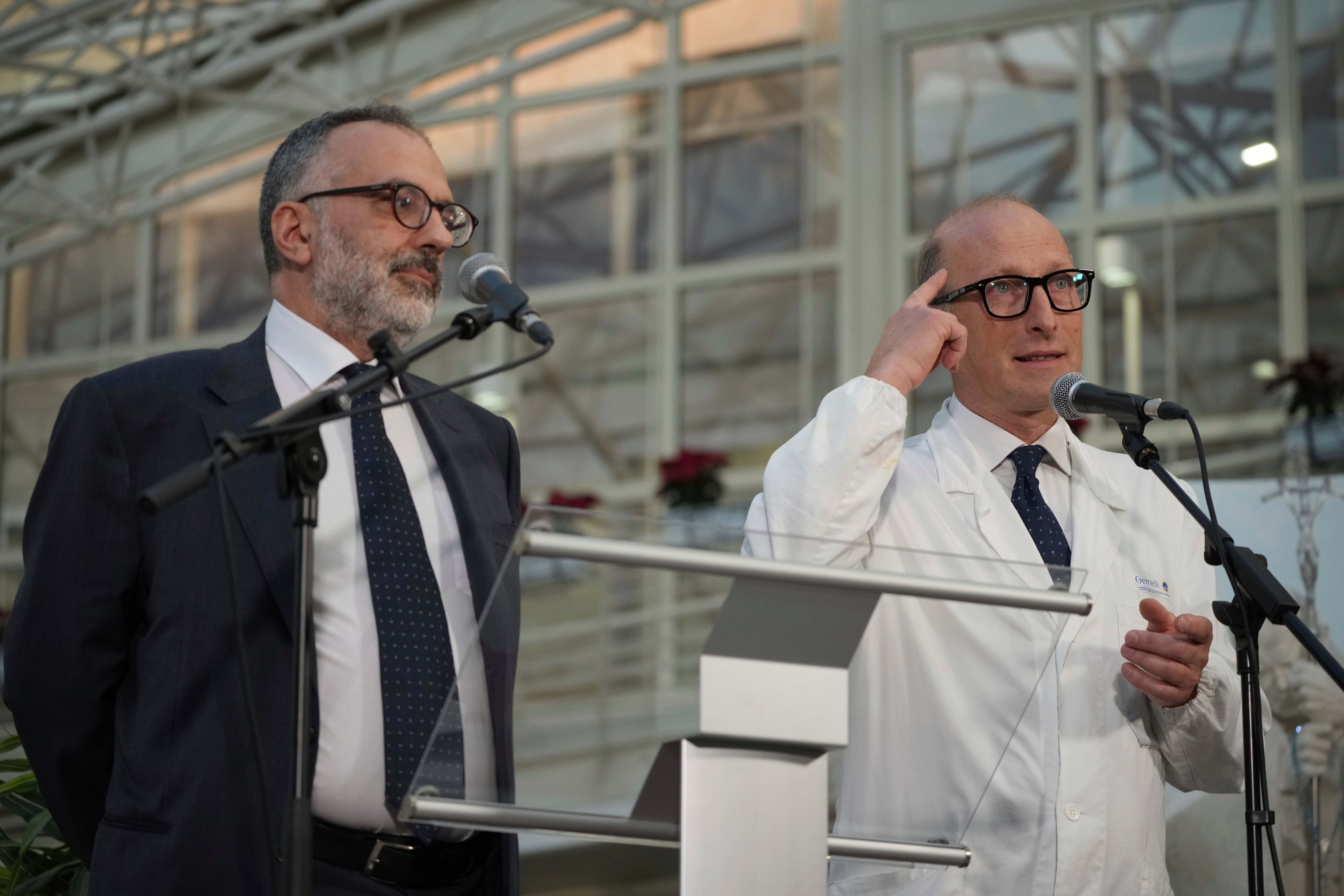Shorouk Express
Pope Francis is in a critical condition after he suffered a long asthmatic respiratory crisis that required high flows of oxygen, the Vatican has said.
The pontiff, 88, who has been in hospital for a week with a complex lung infection, also received blood transfusions after tests showed a condition associated with anaemia, the Vatican said in a late update on Saturday.
Warning that “the pope is not out of danger”, the statement marked the first time the Vatican has described Francis’s condition as “critical” after his health deteriorated over the past 24 hours.
“The Holy Father remains alert and has spent the day in a chair, though he is more unwell than yesterday. At the moment, the prognosis is reserved,” the Vatican added, suggesting the pope’s prognosis is in flux and requires close observation.
Francis’s doctors have warned that the main threat facing him would be the onset of sepsis, a serious infection of the blood that can occur as a complication of pneumonia – and can lead to organ failure and death.
.jpeg)
open image in gallery
As of Friday, there was no evidence of any sepsis, and Francis was responding to the various drugs he is taking, the pope’s medical team said in their first in-depth update on the pope’s condition.
Francis, who has chronic lung disease, was admitted to Gemelli hospital on 14 February after a week-long bout of bronchitis worsened.
Doctors first diagnosed the complex viral, bacterial and fungal respiratory tract infection and then the onset of pneumonia in both lungs. They prescribed “absolute rest” and a combination of cortisone and antibiotics, along with supplemental oxygen when he needs it.
Double pneumonia is a serious infection that can inflame and scar both lungs, making it difficult to breathe. The Vatican has described the pope’s infection as “complex”, saying it is being caused by two or more microorganisms.

open image in gallery
Dr Sergio Alfieri, the head of medicine and surgery at Rome’s Gemelli hospital, said the biggest threat facing Francis was that some of the germs that are currently located in his respiratory system pass into the bloodstream, causing sepsis.
Saturday’s blood tests showed that he had developed a low platelet count, a condition called platelopenia or thrombocytopenia. Platelets are cell-like fragments that circulate in the blood that help form blood clots to stop bleeding or help wounds heal. Low platelet counts can be caused by a number of things, including side effects from medicines or infections, according to the US National Institutes of Health.
Francis’s doctors described him as highly vulnerable due to his age and frailty.
“Sepsis, with his respiratory problems and his age, would be really difficult to get out of,” Dr Alfieri told a news conference at Gemelli on Friday, adding: “He knows he’s in danger. And he told us to relay that.”

open image in gallery
Francis, who has been pope since 2013, has suffered bouts of ill health in the past two years. He is particularly prone to lung infections because he developed pleurisy as a young adult and had part of one lung removed.
Concerns over his health have led at least one cardinal to suggest that Francis might resign if he felt unable to carry on.
The Vatican hierarchy went on the defensive to tamp down speculation over a possible resignation. There is no provision in canon law for what to do if a pope becomes incapacitated. Francis has said that he has written a letter of resignation that would be invoked if he were medically incapable of making such a decision. The pope remains fully conscious, alert, eating and working.
The Vatican secretary of state, Cardinal Pietro Parolin, who is sometimes referred to as the deputy pope, gave a rare interview to Italian newspaper Corriere della Sera to respond to the rumours. It came after the Vatican issued an unusual and official denial of an Italian media report that said Cardinal Parolin and the Pope’s chief canonist had visited Francis in the hospital in secret. Given the canonical requirements to make a resignation legitimate, the implications of such a meeting were significant, but the Vatican flat-out denied that any such meeting occurred.

open image in gallery
Cardinal Parolin told the newspaper such speculation seemed “useless” when what really mattered was the health of Francis, his recovery and return to the Vatican.
“On the other hand, I think it is quite normal that in these situations uncontrolled rumours can spread or some misplaced comment is uttered. It is certainly not the first time it has happened,” Parolin was quoted as saying. “However, I don’t think there is any particular movement, and so far I haven’t heard anything like that.”
Deacons, meanwhile, were gathering at the Vatican for their special Holy Year weekend. Francis got sick at the start of the Vatican’s Holy Year, the once-every-quarter-century celebration of Catholicism. This weekend, Francis was supposed to have celebrated deacons, a ministry in the church that precedes ordination to the priesthood.
In his place, the Holy Year organiser will celebrate Sunday’s Mass, the Vatican said. And for the second consecutive weekend, Francis was expected to skip his traditional Sunday noon blessing, which he could have delivered from Gemelli if he were up to it.


.jpeg?width=1200&height=800&crop=1200:800&w=750&resize=750,375&ssl=1)



















.jpeg?width=1200&height=800&crop=1200:800&w=120&resize=120,86&ssl=1)